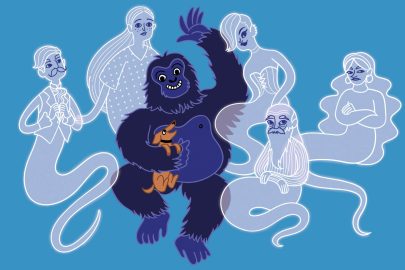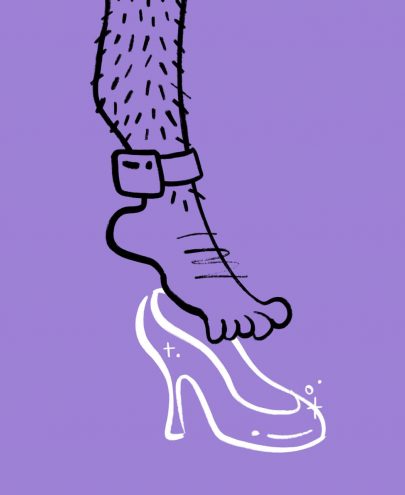Nov 5, 2015 etc
Words from Samoan and Tongan have morphed into terms you’ll hear used by young New Zealanders.
This article was first published in the October 2015 issue of Metro. Illustration for Metro by Tane Williams.
The other day I read an article called “12 Words Black People Invented, and White People Killed”. Huffington Post writer Zeba Blay argues black slang is one of the most appropriated aspects of black culture, with many of the words, such as “bae”, “ratchet”, “squad”, “fleek” and “twerk”, being used by the black community for years before a Miley Cyrus or Taylor Swift brought them to the mainstream.
What I found most interesting was learning about the origins of each word, where they came from and what they really meant. I’d hear these words pop up on rap songs or see them on Instagram and would have to guess at their meaning — Urban Dictionary can’t always be relied on.
Earlier this year, I’d gone on a mission to find out the origin of the word “skux”, after Drake said it multiple times during his Auckland concert to further endear himself to the local crowd. It was Kiwi slang, for sure, but where did it come from and how did a word that means “stud” morph into “skux”?
Most of my Twitter followers claim its birthplace is Wellington. Rongotai College, to be exact, though other schools also lay claim to it. Legend has it Ma’a Nonu is the original “skux”.
My sister Penina had already done some digging into the word a few months earlier, and found it has its origins in the Samoan slang word for study, “sikaki”. Shorten “sikaki”, or study, and you have “skak” or “stud”. And from there, you can see how “skak”, or “skaks” (once you add an “s”, because Kiwis love to add an “s” to everything), can transform to “skux”.
Until then, I’d had no idea of the Samoan language ties to the word, and it got me thinking about what other Polynesian words we’ve managed to mould and weave into the lexicon.
“Uce” is an obvious one, used in place of “bro”. You might have heard kids yelling out, “Laters, uce!”
“Uce” is an obvious one, used in place of “bro”. You might have heard kids yelling out, “Laters, uce!”, or jokingly challenging each other to “one outs, dox”.
“Uso” is the Samoan word for brother, and “uce” its shortened version. “Dox” is the Tongan equivalent. Starting out as “tokoua”, meaning sibling in Tongan, shortened to “toko”, then to “toks” and finally to “dox”. And, in case you’re wondering, “one outs” is asking for someone to have a one-on-one fight.
One of my favourite Poly-originated slang words to use is “bots”, or “botsing it”. If you think someone is an eat-arse (more great Kiwi slang), or rather, someone likes to make out they’re a know-it-all, “bots” would be the perfect word to describe them.
For example, “Man, he’s always botsing it, I played him a song from ‘good Kid, m.A.A.d city’, and he goes, ‘Mean, I love J Cole!’ True, what a bots guy!”
“Bots” originates from the Samoan term “fia poto”, which you use to essentially disparage someone you believe doesn’t know what they’re talking about. “Stop being a fia poto [or fia poko].” Fia poto is then shortened to “fia bots”, and then shortened again to just “bots”.
It’s hard for me personally to tell how mainstream, or middle New Zealand, these words have gone. I hear them all the time, but I’m not sure if they’re at the “being ruined by white people” stage yet. As long as Miley Cyrus doesn’t try to bots it and start using skux or dox as her own, I think we’re good. She might have the whole Poly community wanting to one-outs her otherwise. #





